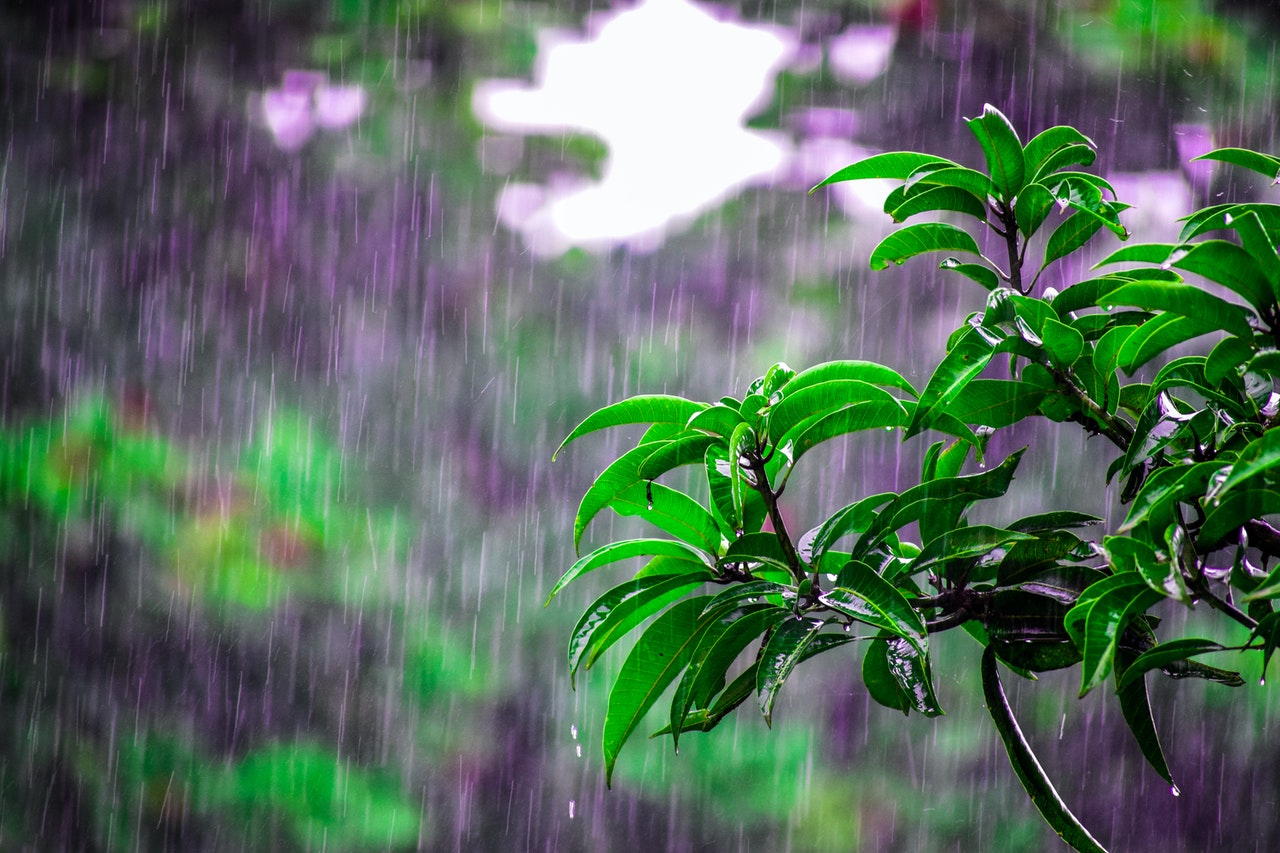Ever wondered if rain water is better for plants than tap water? Continue reading to find out why…
Plants use the moisture in the soil to replenish the water lost through transpiration. If there is no water in the soil, the leaves will wilt. As more water is lost, the plant will fail and eventually die. Rainwater builds up the moisture levels in the soil and assures a healthy plant.
There are several reasons rainwater is more suitable for plants than tap water, but the most important is chemistry. In tap water, chlorine is a necessary disinfectant and fluoride is added to prevent cavities (as long as you drink one glass a day).
While it’s true that tap water can help plants grow healthy, rainwater is actually a much better choice as garden water. Notice that after rain falls, plants take on a greener, cleaner and lusher appearance.
Nearly all plants are susceptible to chlorine toxicity, usually expressed in burnt leaf margins.
Calcium and Magnesium make tap water hard and damaging to pipes, which is sometimes remedied by the addition of sodium as a water softener. But none of these mineral elements — which are much less concentrated in rainwater — do plants much good when delivered through a sprinkler system. The white sediment you see on the leaves of your plants is calcium and magnesium sediment from irrigation water, and sodium, like chlorine, is toxic to plant tissue.
Furthermore, sodium that reaches the ground is damaging to soil structure, too. In a productive garden, soil particles clump together in beneficial aggregates. Sodium, however, disperses these aggregates and creates cracks on the soil surface.
Plants look greener after it rains since air is 78 percent nitrogen and nitrogen, above all other elements, is what makes plants green. Some of this element, in its nitrate and ammonium forms, comes down in the rain and is immediately taken in by plants through roots and leaves.
Rainwater also contains more oxygen than tap water. You might think your plants are dangerously waterlogged as a result of excessive rain. Yet, whereas waterlogging may bring about anaerobic soil conditions and lead to root rot if you overwater your plants with tap water, the fact that rainwater is highly oxygenated may provide a margin of safety when soil is saturated after a downpour.
Carbon dioxide is also brought down to Earth to the benefit of plants when it rains. Carbon dioxide, when it combines with other minerals in the atmosphere, imparts to rainwater an acidic pH. When this acidic rainwater reaches the soil, it helps to release micronutrients such as zinc, manganese, copper and iron that are essential to plant growth but are mostly locked up in our local soil, which typically registers a neutral to alkaline pH. (Excessive pollutants in the air can produce so-called acid rain, which is harmful to plants, but is more of an issue in the Northeast than locally.)
Another benefit of rain is that it leaches salts down beyond the root zone. These salts, which are carried in irrigation water, accumulate throughout the soil profile and inhibit plant growth. When these salts are flushed through the soil after several years of accumulation, as is happening this winter, the effect is pronounced and the growth of plants is explosive.
Rain also distinguishes itself by the simple fact that it falls uniformly in the garden. This means that all of the soil is leached so that even the furthest reaches of a plant’s root zone will be bathed and cleansed of salt.
And, of course, rainwater will also wash off the mineral deposits, dust and pollutants that cover the leaves of all our plants, each and every one a survivor of the profoundly anti-horticultural urban environment that we call home.
For more information on each of these services we provide click here for more.
If you are sick of waiting for a tradie click here, we provide professional tree services Newcastle all the time.
To identify different species of trees an AQF5 Arborist is your go to person. Our AQF5 Arborist has years of experience and knows his species. Looking for some pruning tips.
If you have any questions or comments go to https://www.branchmanagement.com.au/contact/ or phone: 0419 289 223
